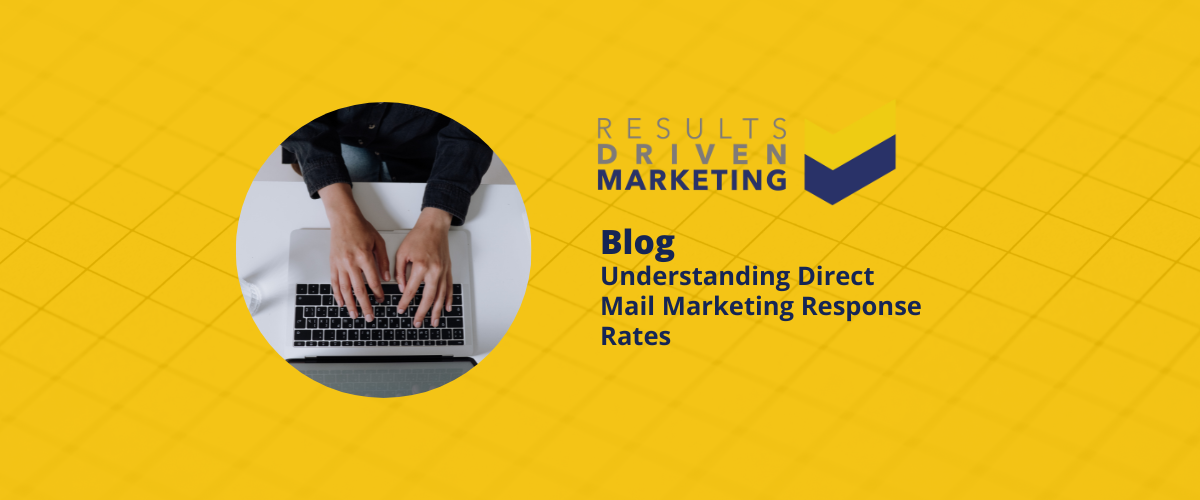
How B2B Data Accuracy Effects Campaign Performance
Delving into the intricate world of B2B data accuracy, we find that it’s not just about numbers and figures; it’s about the very foundation upon which businesses build their strategies. As we embark on this exploration, we’ll shed light on the true cost of inaccurate contact data, its profound impact on sales and marketing, and the undeniable benefits of ensuring data accuracy.
The Cost of Bad B2B Contact Data
- Financial Implications: Every piece of inaccurate data comes with a price tag. Whether it’s the cost of reaching out to the wrong audience or the missed opportunities from potential leads, the financial implications can be staggering.
- Operational Setbacks: Inaccurate data can lead to misguided strategies, resulting in wasted resources and time. It’s not just about the immediate losses but the long-term repercussions on operational efficiency.
- Reputation Risks: In the B2B realm, reputation is everything. Bad contact data can lead to miscommunication, potentially tarnishing a company’s image in the eyes of its stakeholders.
The Impact of Data Accuracy on B2B Sales & Marketing Performance
Accurate B2B contact data is akin to a well-oiled machine, driving sales and marketing efforts towards tangible results. Here’s how:
- Targeted Campaigns: With accurate data, marketing campaigns hit the bullseye, reaching the right audience with messages that resonate.
- Enhanced Lead Generation: Accurate data ensures that every lead is a potential opportunity, maximising the ROI on lead generation efforts.
- Informed Decision Making: Data accuracy provides a clear picture, enabling businesses to make decisions based on facts, not assumptions.
The Benefits of Accurate B2B Contact Data
- Increased ROI: Every penny spent on accurate data yields higher returns, be it through sales, partnerships, or brand building.
- Strengthened Customer Relationships: Accurate data allows for personalised communication, fostering stronger, more meaningful relationships with customers.
- Strategic Advantage: In a competitive market, accurate data can be the edge a business needs, offering insights that competitors might overlook.
How to Improve B2B Contact Data Accuracy
Improving B2B contact data accuracy isn’t a one-time task; it’s an ongoing commitment. Here’s a step-by-step approach:
- Audit Existing Data: Begin by assessing the current state of your data. Identify gaps, inconsistencies, and outdated information.
- Implement Data Validation Tools: Use tools and software that validate data at the point of entry, ensuring that only accurate data makes its way into the system.
- Regularly Update Data: Data decays over time. Make it a practice to periodically review and update your database.
- Train Your Team: Ensure that everyone involved in data collection and entry understands the importance of accuracy and follows best practices.
Importance of Accuracy & Reliability in B2B Data Sampling
When we talk about B2B data accuracy, it’s essential to delve deeper into the realm of data sampling. Data sampling, in essence, is a snapshot of the larger data universe. But what happens if this snapshot is blurred or distorted?
- Trustworthiness: Accurate and reliable data sampling ensures that the insights derived are trustworthy. It’s like having a compass that always points north; you know you’re headed in the right direction.
- Informed Strategies: With reliable data sampling, B2B strategies are not based on mere hunches but solid, accurate data. It’s the difference between shooting in the dark and hitting the target with precision.
- Efficient Resource Allocation: When you have reliable data samples, you know exactly where to channel your resources for maximum impact.
The Importance of Data Quality for B2B Organisations
In the B2B landscape, data isn’t just numbers and figures; it’s the very lifeblood of an organisation. The quality of this data can make or break business strategies.
- Risk Mitigation: High-quality data minimises risks associated with misguided strategies or misinformed decisions.
- Enhanced Customer Engagement: Quality data allows for tailored communication, ensuring that every interaction with a customer or potential lead is meaningful.
- Operational Excellence: With quality data at their fingertips, B2B organisations can streamline operations, ensuring efficiency at every step.
Premium B2B Data
In the world of B2B data accuracy, there’s data, and then there’s premium data. But what sets premium B2B data apart?
- Depth of Insights: Premium data offers a depth of insights that standard data might miss. It’s like having a magnifying glass that brings even the minutest details into focus.
- Up-to-date Information: Premium data is regularly updated, ensuring that businesses are always working with the most current information.
- Comprehensive Coverage: From firmographics to technographics, premium B2B data covers a wide spectrum, leaving no stone unturned.
B2B Data
B2B data is the backbone of any B2B strategy. It’s the foundation upon which businesses build their outreach, marketing, and sales efforts.
- Diverse Sources: B2B data is derived from a plethora of sources, each adding a unique dimension to the overall dataset.
- Dynamic Nature: B2B data is ever-evolving, reflecting the dynamic nature of the business landscape.
- Strategic Lever: When leveraged effectively, B2B data can be a powerful tool, driving growth and fostering innovation.
What is B2B Data?
At its core, B2B data is information related to businesses and their operations. But it’s more than just raw numbers. It’s a treasure trove of insights, waiting to be unearthed.
- Understanding Market Dynamics: B2B data offers a glimpse into market trends, helping businesses stay ahead of the curve.
- Tailored Outreach: With B2B data, businesses can tailor their outreach efforts, ensuring that they resonate with the target audience.
- Driving Innovation: B2B data can be a catalyst for innovation, offering insights that can lead to groundbreaking solutions.
B2B Data Sources
Navigating the vast ocean of B2B data, one quickly realises the sheer diversity of sources from which this invaluable information springs. But, where exactly does all this data come from?
- Trade Shows and Conferences: These events are goldmines of B2B data, where businesses showcase their offerings and network, leaving behind a trail of data.
- Surveys and Feedback Forms: Direct feedback from clients and partners provides a wealth of data, offering insights straight from the horse’s mouth.
- Public Records and Databases: Government databases, public records, and industry reports often contain a trove of B2B data waiting to be tapped into.
- Digital Footprints: In today’s digital age, every online interaction, be it a website visit or a social media post, contributes to the ever-growing pool of B2B data.
Data Providers
In the realm of B2B data accuracy, data providers play a pivotal role. They’re the custodians of data, ensuring its quality, relevance, and timeliness.
- Specialised Expertise: Data providers bring to the table a specialised expertise in data collection, validation, and analysis.
- Regular Updates: With the dynamic nature of B2B data, providers ensure that the data is always up-to-date, reflecting the latest market trends.
- Diverse Offerings: From firmographics to technographics, data providers offer a wide spectrum of data, catering to diverse business needs.
B2B Data Use Cases
B2B data, with its depth and breadth, finds application in a myriad of use cases, each harnessing its potential in unique ways.
Lead Generation
In the world of B2B, lead generation is the name of the game. With accurate data at their disposal, businesses can:
- Identify Potential Leads: Pinpoint businesses that fit the ideal customer profile.
- Tailor Outreach Efforts: Craft messages that resonate with the target audience, increasing the chances of conversion.
- Optimise Marketing Campaigns: Use data to refine marketing strategies, ensuring maximum ROI.
Outbound Sales
Outbound sales efforts, powered by B2B data, can be a game-changer. Here’s how:
- Segmentation: Segment the target audience based on various parameters, ensuring personalised outreach.
- Sales Pitches: Craft sales pitches that hit the mark, backed by data-driven insights.
- Follow-ups: Use data to determine the optimal frequency and mode of follow-ups, maximising conversion chances.
Analytics
In the age of information, analytics stands as a beacon, guiding businesses towards informed decisions.
- Trend Analysis: Use B2B data to identify market trends, staying ahead of the curve.
- Performance Metrics: Measure the effectiveness of strategies, refining them based on data-driven feedback.
- Predictive Analysis: Harness the power of data to forecast future trends, preparing businesses for what lies ahead.
Benefits of B2B Data
In the intricate tapestry of the B2B landscape, data threads its way, weaving patterns of success for those who harness its potential. Especially when we talk about B2B data accuracy, the benefits are manifold and span across various facets of a business.
For Sales Teams
Sales teams, the frontline warriors of any business, stand to gain immensely from accurate B2B data.
- Precision Targeting: Armed with accurate data, sales teams can zero in on potential leads with laser precision.
- Enhanced Conversion Rates: With data-backed insights, sales pitches resonate better, leading to higher conversion rates.
- Streamlined Sales Funnel: Accurate data ensures a smoother sales funnel, minimising hiccups and ensuring a seamless lead-to-customer journey.
For Marketing Teams
When it comes to marketing maestros, B2B data accuracy is the magic wand that transforms campaigns into success stories.
- Tailored Campaigns: Data allows marketing teams to craft campaigns that strike a chord with the target audience.
- Optimised Ad Spend: With data-driven insights, marketing budgets are utilised optimally, ensuring maximum ROI.
- Feedback Loop: Accurate data provides a feedback mechanism, helping marketing teams refine their strategies in real-time.
For Revenue Operations Teams
Revenue operations, the unsung heroes behind the scenes, thrive on B2B data accuracy.
- Forecasting: Accurate data provides a clear picture of revenue streams, aiding in precise forecasting.
- Operational Efficiency: With data guiding the way, operational bottlenecks are minimised, ensuring smooth workflows.
- Strategic Planning: Data-backed insights enable revenue operations teams to plan strategically, aligning with business goals.
B2B Data Types
In the vast universe of B2B data, various data types emerge, each with its unique significance and application.
Firmographics
Firmographics, akin to demographics in the B2C world, delve into the characteristics of organisations.
- Industry Verticals: Understanding the industry segment of a business.
- Company Size: Gauging the scale of operations based on employee count or revenue.
- Geographical Location: Pinpointing the geographical presence of a business.
Technographics
Technographics shed light on the technology landscape of a business.
- Software Usage: Identifying the software tools and platforms a business utilises.
- IT Infrastructure: Gaining insights into a business’s IT setup and infrastructure.
- Digital Adoption Rate: Understanding how tech-savvy a business is.
People Data/Contact Data
This data type revolves around the people who drive a business.
- Contact Details: Essential details like name, designation, and contact information.
- Professional Background: Insights into an individual’s professional journey and expertise.
- Networking Footprint: Understanding an individual’s professional network and affiliations.
Intent Data
Intent data is all about gauging a business’s purchase intentions.
- Online Behaviour: Tracking online activities that hint at purchase intentions.
- Content Engagement: Understanding the type of content a business engages with.
- Purchase Signals: Identifying clear signals that indicate a business is in the buying mode.
Outsourcing B2B Data vs. Collecting B2B Data Yourself
In the quest for B2B data accuracy, businesses often grapple with a pivotal question: to outsource or to collect data in-house?
- Outsourcing Pros: Access to specialised expertise, cost-effectiveness, and high-quality data.
- In-house Pros: Greater control over data collection, customisation, and immediate access.
- The Middle Ground: Many businesses opt for a hybrid approach, blending the best of both worlds.
B2B Database Processes
Ensuring B2B data accuracy in a database involves a series of meticulous processes.
B2B Data Sourcing
The first step in the journey, data sourcing is all about gathering data from various sources, be it trade shows, public records, or digital footprints.
B2B Data Cleaning
Once sourced, data needs to be cleaned, ensuring it’s free from errors, duplicates, and inconsistencies.
B2B Data Validation
Validation ensures that the data is not only accurate but also relevant, checking it against trusted sources.
B2B Data Storing
The final step, data storing involves organising the data in a structured manner, ensuring easy access and retrieval.
Top Three B2B Data Trends in 2023
As we navigate the ever-evolving landscape of 2023, certain B2B data trends have emerged, shaping the way businesses operate.
- AI-Powered Data Analysis: With the rise of artificial intelligence, businesses are leveraging AI to sift through vast amounts of data, extracting valuable insights with unprecedented accuracy.
- Real-time Data Processing: In today’s fast-paced world, real-time data processing has become the norm. Businesses are now equipped to make decisions on the fly, thanks to the immediacy of data.
- Data Privacy and Security: With increasing concerns about data breaches, businesses are prioritising data security, ensuring that their B2B data remains uncompromised.
What are the Advantages of Thinking About B2B Data Accuracy?
Diving deep into the realm of B2B data accuracy, the advantages are manifold.
- Informed Decision Making: Accurate data provides a clear picture, enabling businesses to make decisions that align with market realities.
- Enhanced ROI: Every penny invested in ensuring data accuracy yields higher returns, be it through sales, partnerships, or brand building.
- Operational Efficiency: Accurate data streamlines operations, ensuring optimal resource utilisation and minimising hiccups.
What are the Key Considerations Thinking About B2B Data Accuracy?
When pondering over B2B data accuracy, certain key considerations come to the fore.
- Source Verification: Always verify the sources of your data, ensuring its authenticity.
- Regular Audits: Periodically audit your data, identifying gaps and inconsistencies.
- Stakeholder Training: Ensure that everyone involved in data collection and entry understands the importance of accuracy.
H2: FAQ
What is the difference between B2B data quality and B2B data accuracy?
Data quality encompasses a broader spectrum, including accuracy, relevance, timeliness, and completeness. B2B data accuracy, on the other hand, focuses solely on the correctness of data.
How does B2B data accuracy impact sales and marketing performance?
Accurate data ensures targeted outreach, higher conversion rates, and informed decision-making, driving sales and marketing success.
Why is it important to consider the reliability of B2B data sampling?
Reliable data sampling ensures that insights derived are trustworthy, forming a solid foundation for business strategies.
How can organisations ensure the quality of their B2B data?
Organisations can ensure data quality through regular audits, source verification, and stakeholder training.
What are the main sources of B2B data?
Main sources include trade shows, public records, digital footprints, data providers and surveys.
How do data providers ensure the accuracy of B2B data?
Data providers use specialised tools, periodic validation, and expert reviews to ensure data accuracy.
What types of B2B data are most valuable for businesses?
Valuable data types include firmographics, technographics, intent data, and contact data.
What are the benefits of outsourcing B2B data collection?
Outsourcing offers access to specialised expertise, cost-effectiveness, and high-quality data.
How do businesses store and manage their B2B data?
Businesses use databases, CRM systems, and cloud storage solutions to store and manage their B2B data, ensuring easy access and retrieval.





